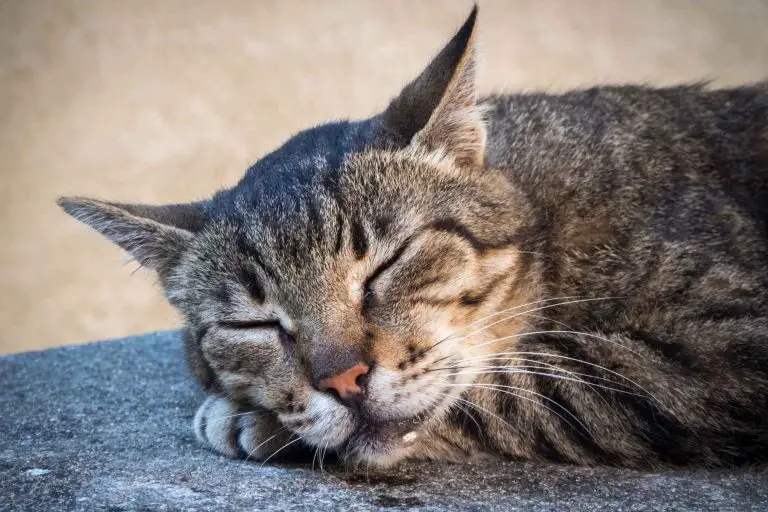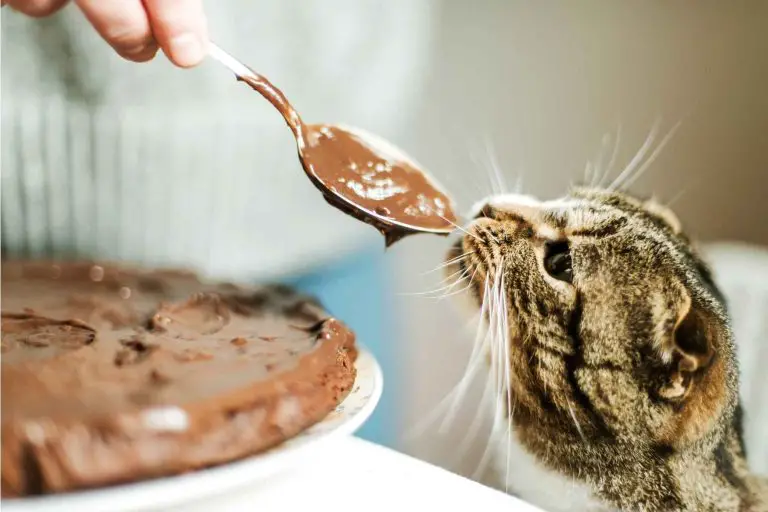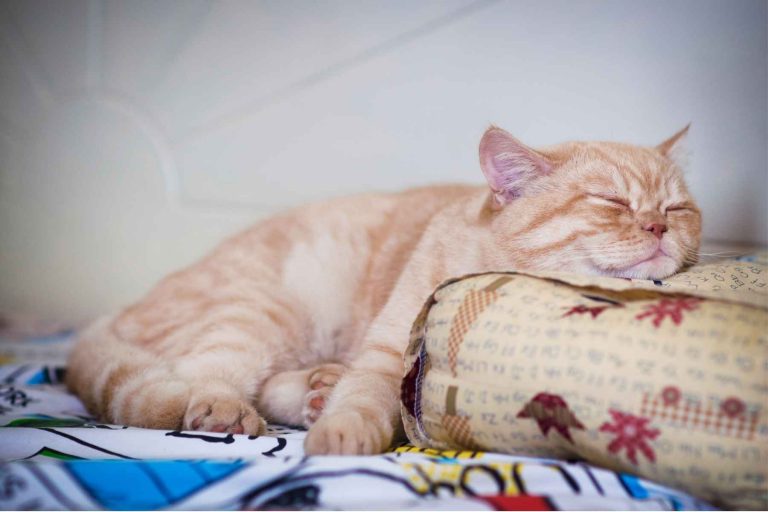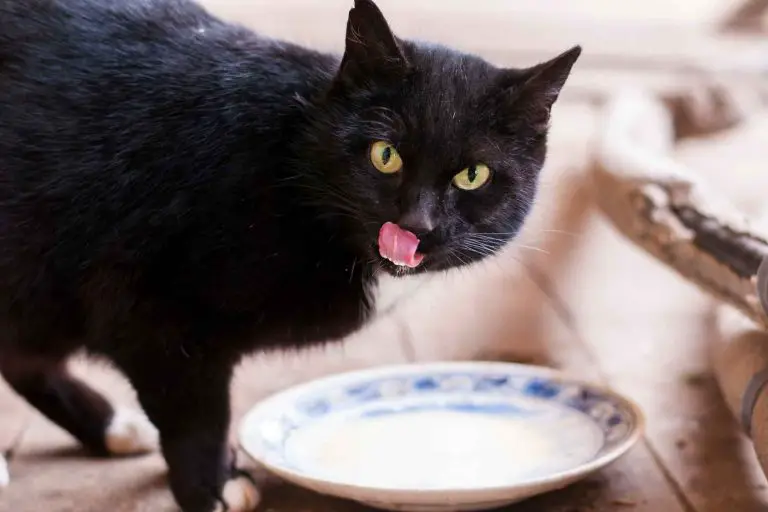When Should I Change the Bedding After My Cat Gives Birth?
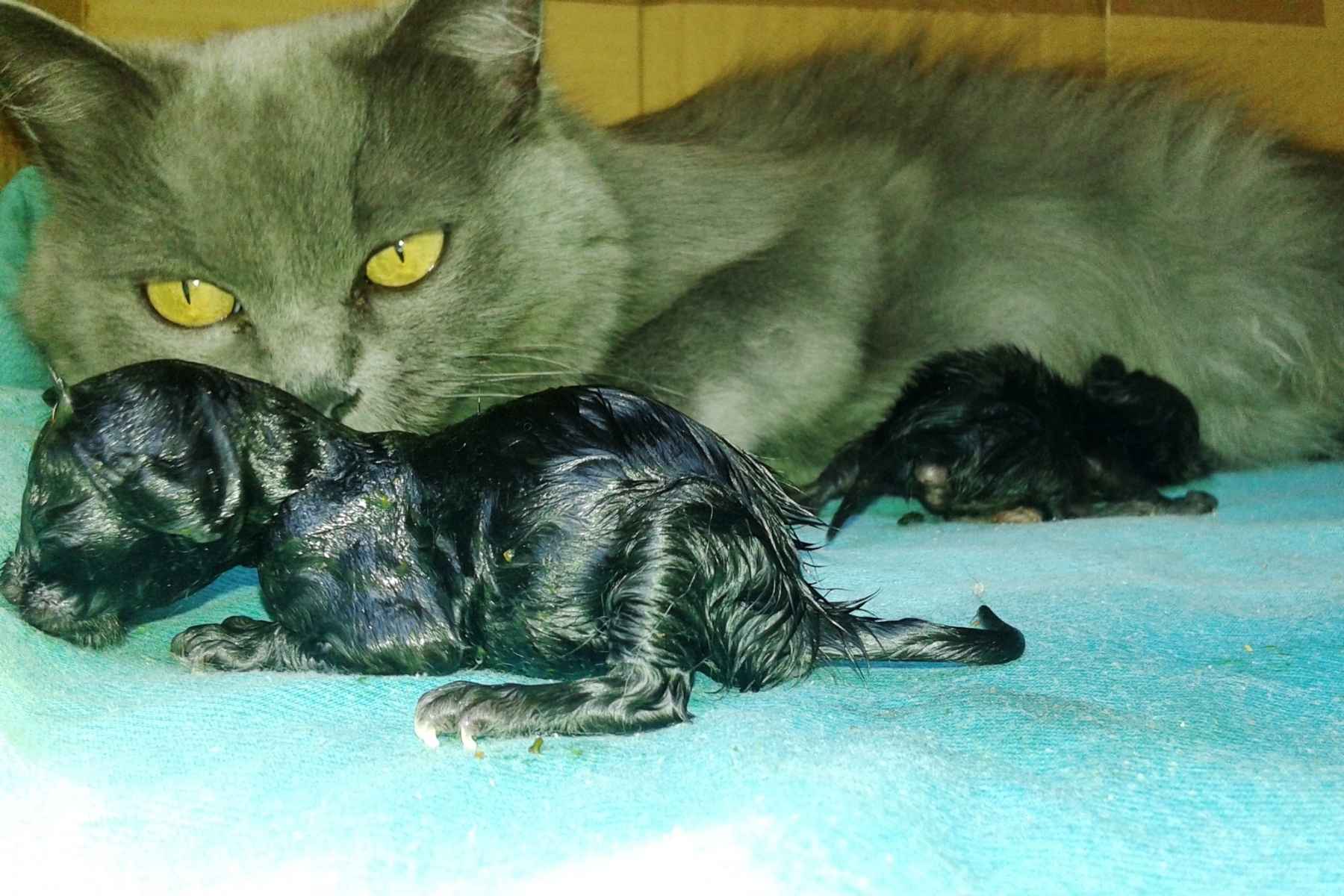
I honestly can’t think of anything more precious than newborn kittens. Those perfect little meows and the way they grope around for mom’s milk are just so sweet.
I had the pleasure of watching my friend’s cat give birth to four beautiful kittens right in her bedroom closet! My friend had such a nice setup for them on a clean towel placed in a box.
It got me thinking, when are you supposed to change the bedding after your cat gives birth? I did some research before writing this article and was surprised by the answer!
When your cat gives birth to her kittens, you do not want to change the bedding for at least 48 hours. Their first few days together are important for bonding between mom and babies. By keeping the same bedding, the smells of mom and the birth will help them connect.
In this article, I will talk about the beautiful process of pregnancy and birthing in cats. I will also go over what you can do to help mama cat prepare for this amazing time and how to keep her happy.
My Cat is Having Kittens!
While it is important to spay and neuter your pets, there are times when accidents happen. Or perhaps you are a breeder of a designer cat, and a new litter of kittens is welcome in your home.
How Can I Tell if She is Pregnant?
While a visit to your veterinarian can confirm pregnancy for sure, there are other surefire ways to tell if your cat may be pregnant. Here are some common signs:
- Her nipples will be swollen and pink around the 3rd week of pregnancy
- Weight gain (about 2-4 pounds total)
- Increased eating and drinking
- Swollen belly, which happens around the 5th week
- Vomiting
- Changes in personality, such as being more or less cuddly or aloof
What Can I Do to Prepare?
Once you know that your cat is pregnant, there are some things you can do to help her prepare for a successful birth. Cats are pregnant from 58 to 67 days, so knowing how far along she is will tremendously help.
Amp Up Her Diet
Your cat’s nutritional requirements will change while she is pregnant and nursing. She will need about 25% more food than usual. A high-quality food that is high in fat and protein is best.
You do not want to overfeed your pregnant cat to the point of obesity as it increases the risk of difficult labor. At the same time, you don’t want to underfeed as it can result in abnormal development of the baby kittens.
Give Her the Best Environment
As she gets closer to the time she is about to give birth, usually a day or two, she will begin looking for a quiet and safe place to have her kittens.
This is typically called nesting behavior.
Behaviors of a cat about to give birth include:
- Restlessness
- Nesting
- Anxiety
- Pacing
A laundry basket or cardboard box (such as in my friend’s case) filled with blankets works great. Keep it in a quiet place in your home, such as a closet or a room that isn’t used often.
Don’t be offended if she does not use it, though. Mommy cats are going to give birth where they want.
Just make sure she does not have any way of getting outside because you don’t want her to be somewhere that is unsafe and unattended.
Give Her Privacy
Once the mother cat has chosen where she will have her babies, the best thing you can do is leave her be as long as she is safe. You can certainly watch from a safe distance, but it’s best not to crowd her.
Once she goes into active labor, you may notice her panting and meowing and then finally settling in where she is most comfortable. Again, you don’t want to crowd her, but you want to be there to check on her periodically.
Keep An Eye On Her
Her contractions will become stronger, and you may notice a bit of blood-stained vaginal discharge. This is normal and means things are moving along.
Once her contractions have started, you should expect to see the first kitten within the next few hours.
More kittens should follow at the rate of one kitten per hour, but it could be more. Be sure to keep track of the placentas as well and make sure there is an equal number of kittens and placentas.
Most but not all mother cats will eat the placenta and clean their kittens. Keep an eye on her to see if she removes the membranes and stimulates movement and breathing in her kittens.
Thankfully, most cats do okay without any intervention from us.
What If Something Goes Wrong?
Unfortunately, there are times when we do need to intervene. Always have your veterinarian’s number on hand in the event of any questions or to see if you need to transport your cat to the hospital.
Unless it’s an emergency, it’s best not to disturb a cat who is birthing her babies. The signs you should be aware of in the event of an emergency are as follows:
- After one hour of active labor, you do not see a kitten
- It has been more than two hours without another kitten, and the mother is still in labor
- The mother cat seems overly distressed or confused
- Discharge coming from the vagina is very bloody
- There are any stillborn kittens
- Some kittens appear weak or abnormal
- There are more kittens to be born (you would know this by an earlier ultrasound or veterinarian’s exam), but labor has stalled
- A kitten remains in the birth canal for more than a few minutes
Caring for Her After Labor
Once you are sure everything has proceeded as planned and all of the kittens have been born healthy, it’s time to ensure mom and the babies have the best aftercare.
Here is what you can do to ensure they are well taken care of.
Keep Them Together
You don’t want to separate or disturb mom and her babies for the first few days. She is exhausted, her kittens are exhausted, and they need some time to relax and bond.
Provide Adequate Food
A mother cat’s calorie intake should be boosted as she will need much more while feeding her kittens. Provide fresh food and water for her at all times so she does not have to leave her babies.
Do Not Change the Bedding
It may seem strange to us, and we may be tempted to give mom and her kittens clean bedding. But you don’t want to change the bedding she birthed her kittens in for at least 48 hours.
The first few days for mom and babies are a very important bonding time. Even if it’s soiled, you will help them connect and form a critical bond by leaving the bedding.
And because mom won’t be leaving her kittens for a few days, you won’t have much choice anyway. When she starts getting up on her own to wander and take breaks from nursing, you can gently move the kittens to change the bedding. Just be sure to put them right back after.
Just keep in mind that not all mother cats are the same. Your cat may be perfectly fine with you intervening to change bedding, but some mother cats may not. It’s perfectly normal for a mother cat to be highly protective of her kittens.
So don’t be offended if she lashes out at you. Be patient and respect her needs.
Caring for Mom and Babies Over the Next Several Weeks
Once everyone has settled into a routine, you should keep the mom and her babies in the same spot, but she may need a bigger box or hamper. The mother cat will want to stretch out to nurse, and there should be plenty of room for the kittens.
Keep the area clean and private, and keep other household pets away. Keep the room where the babies are warm, as kittens can easily get chilly.
Make sure the litter box is always clean. Once the kittens are about four weeks old, they will start following mom to the litter box. While they may play in at first, they usually start to figure out that it’s a bathroom after a week or so of watching mom.
How Do I Know if a Kitten is Struggling?
Sometimes nature can be cruel, and a mother cat may not take to one of her kittens. Signs you can look for are as follows:
- The kitten is crying constantly
- The kitten is not gaining weight
- Mom will not let the kitten nurse by either hissing or growling at it
- Mom eats her kitten. This is very rare, but it does happen. You don’t need to panic as this may happen if a kitten is not healthy.
If you notice any signs of distress in either your cat or her kittens, contact your veterinarian right away.
Conclusion
Birthing kittens is a wonderful event. As humans, we usually don’t need to intervene, and nature will take its course.
All should be well with the process by leaving mom to herself and not disturbing the bedding after the kittens are born.


